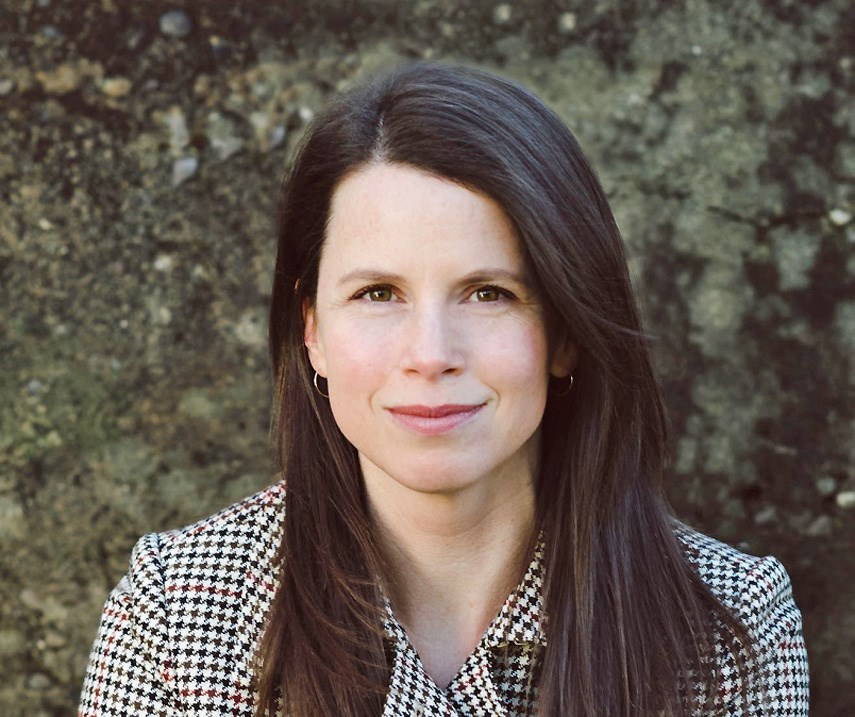You may not have realized it at the time, but you’ve almost certainly had contact with refugees if you live in the Lower Mainland.
“Either they live in your neighbourhood, or they attend school with your children, or your church is supporting them,” says Dr. Martina Scholtens, a Deep Cove resident who spent 10 years as a physician at Vancouver’s Bridge Refugee Clinic, which provides care to between 1,000 and 2,000 newly arrived refugees every year.
Scholtens released a new book last month that she hopes will offer some insight into the trauma and loss suffered by those forced to flee their homelands, and the challenges they face upon arriving in Canada. Your Heart Is the Size of Your Fist (Brindle & Glass, 2017) is a creative non-fiction account of her time spent at the busy urban medical clinic and relates the heartbreaking and hopeful true stories of some of the patients she encountered, told in a way that protects their identities. For example, there’s an Iraqi journalist whose son has been murdered who develops post-traumatic stress disorder and mourns his loss of vocation. And there’s a Congolese woman who refuses antiretroviral treatment for her HIV and instead places her trust in Jesus.
Scholtens has heard it said before that a physician ought to write for three reasons: 1) to memorialize their patients; 2) to reflect on the work of being a doctor; and 3) to advocate for their patients’ needs.
“I wanted to remember these patients and my time at the clinic. I didn’t want to forget those stories,” she says. “As a family doctor, you do have the obligation to be an advocate for your patients and this was a group that probably has less of a voice than most patient groups out there.”
Scholtens would also add a fourth reason why she wrote her book: to entertain.
“The work that I did there, even when it was challenging, it was always so interesting.”
Scholtens ended up becoming the refugee clinic’s medical coordinator, but when she started she was straight out of residency, still learning what it meant to be a physician and a patient advocate. She would often come home from work and spend a few minutes writing in order to relax and debrief after seeing a steady stream of patients walk through her door. She never considered writing a book until after she left the clinic in 2015.
“I found all the previous stuff I had written for years and went through all of it and then I was so glad I had written stuff down,” she says.
In Your Heart Is the Size of Your Fist Scholtens not only recounts everyday interactions with patients, but also reflects on how she grew as a doctor over that decade. In her medical school and residency training, Scholtens says she was always very fixated on disease, eager to make the correct diagnosis and develop a solid treatment plan. She wasn’t as focused on the psychosocial side of medical care.
“Once I was at the clinic, for sure, the diagnosis and treatment of medical conditions was quite a minor part of the job. So much of it was offering support, especially with all the difficulties they encountered with their settlement.”
Patients were less concerned about their blood pressure or blood sugar levels and much more worried about finding adequate housing and gainful employment.
“That does affect their health,” Scholtens says. “If they had those proper social supports, their physical and mental health was very closely related to how well they were doing socially.”
In addition to acting as a medical doctor, she also found herself often taking on a social advocacy role, writing applications to BC Housing, letters to landlords, and exploring available funding options.
She also learned that there are some things a doctor cannot fix – like a history of trauma and loss. At first, she says she felt completely inadequate because she could not change the past. But she soon realized her patients weren’t telling her their tales of trauma and tragedy because they were looking for a solution.
“One thing I learned over the years is that just sitting there and listening and bearing witness to someone’s story of suffering has enormous power,” she says.
By sharing a few of these stories, Scholtens paints a close-up portrait of the settlement process and the complex nature of the doctor-patient relationship.
“I hope that the book moves people in some way,” she says.
Your Heart Is the Size of Your Fist is available at independent bookstores. It can also be ordered online from AllLitUp, Amazon, Indigo, Target and Barnes & Noble.



